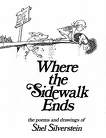 In my “Currently Reading” pile of books lies Prenatal Parenting by Frederick Wirth, M.D. Most interesting so far have been the sections on fetal sensory development, particularly the development and growth of the auditory system. Wirth writes that at “twenty-two weeks of gestation the developing infant will respond to sounds from outside the womb. By twenty-eight weeks the infant responds to sound in very consistent ways.” (28) And so K talks to her walk driving to work, and I press my cheek to K’s belly nightly and tell our daughter how much we’re looking forward to meeting her.
In my “Currently Reading” pile of books lies Prenatal Parenting by Frederick Wirth, M.D. Most interesting so far have been the sections on fetal sensory development, particularly the development and growth of the auditory system. Wirth writes that at “twenty-two weeks of gestation the developing infant will respond to sounds from outside the womb. By twenty-eight weeks the infant responds to sound in very consistent ways.” (28) And so K talks to her walk driving to work, and I press my cheek to K’s belly nightly and tell our daughter how much we’re looking forward to meeting her.
K and I have been playing a little music box for our daughter nightly for some weeks now, but recently, we’ve added reading to the ritual.
It should have a noticeable effect:
I can always tell which of my full-term newborn infants have been read to. They have more mature orienting behavior to auditory stiumli. I can even tell which fathers have been active in reading to their unborn child. I do this by holding the infant between me and his father while we compete for the infant’s attention by calling the child’s name. If the dad has been actively involved in the reading and singing, his child will turn his head toward him, looking for the source of the sound. Invariably, when their eyes meet they both react positively. (Wirth, 29)
 Often, it’s selections from Where the Sidewalk Ends, not so much because L will like it more — obviously, fetal brain development at this point is not that advanced — but because K likes Silverstein’s playful language.
Often, it’s selections from Where the Sidewalk Ends, not so much because L will like it more — obviously, fetal brain development at this point is not that advanced — but because K likes Silverstein’s playful language.
Tonight, Robert Frost, concluding with one of his best, one of the best, period: “Mending Wall.” It has one of the truest passages ever written:
Before I built a wall I’d ask to know
What I was walling in or walling out,
And to whom I was like to give offence.
Something there is that doesn’t love a wall,
That wants it down.’
Such concerns seem largely forgotten these days.